A survey conducted by the Center for Urban and Regional Sociology – CURS shows the very different habits of Romanians in terms of urban transport. The sociological survey, conducted in March, targets the adult population in Bucharest and the county residences.
According to survey data, the availability of public transportation encourages citizens to use them. Thus, significantly more people in Bucharest and neighboring localities use public transportation compared to the inhabitants of the other cities of the country (79% vs. 39%).
Trams and trolleybuses are used by people from Bucharest and neighboring localities, while in other city buses are used by more of the population (72% vs. 57%). The existence of a diversified network of public transportation discourages driving one’s own car. Thus, significantly more adults from other cities use the car to travel compared to residents in Bucharest and neighboring communities (42% vs. 25%).
According to survey data, the availability of means of transport encourages citizens to use them. Thus, significantly more people from Bucharest and neighboring localities usepublic transportation compared to the inhabitants of the other cities in the country (79% versus 39%).
Trams and trolleybuses are used by many more locals and residents in neighboring localities, while in other cities, buses are used by significantly more adult residents (72% vs. 57%).
Moreover, the existence of a diversified network of means of transport discourages car driving. Thus, significantly more adult inhabitants of other cities use the car to move compared to the inhabitants of Bucharest and the neighboring localities (42% vs. 25%).
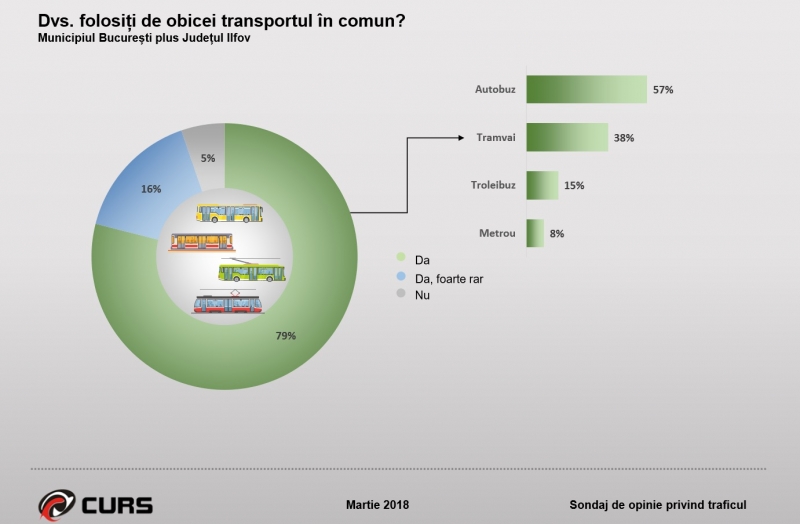
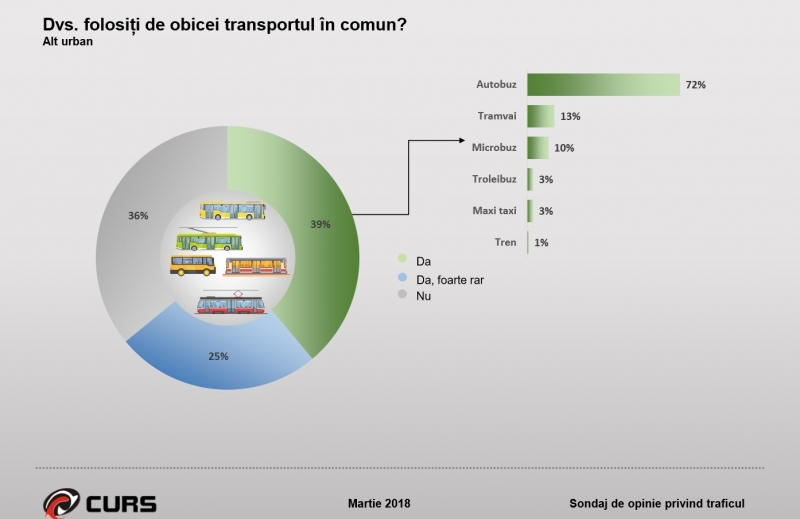
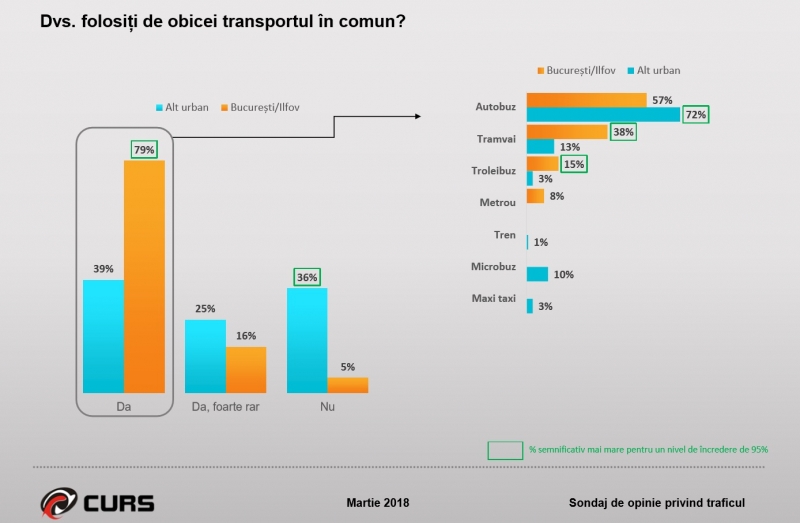 Congested traffic in Bucharest is another factor that favors the use of an automobile. The data show that significantly more people from Bucharest and neighboring places say they spend over one hour in traffic per working day compared to residents in other cities (60% vs. 31%). In addition, a significant percentage of the inhabitants of Bucharest and the neighboring communities (20% of those who travel by car) appreciate spending more than three (3) hours in traffic on weekdays.
Congested traffic in Bucharest is another factor that favors the use of an automobile. The data show that significantly more people from Bucharest and neighboring places say they spend over one hour in traffic per working day compared to residents in other cities (60% vs. 31%). In addition, a significant percentage of the inhabitants of Bucharest and the neighboring communities (20% of those who travel by car) appreciate spending more than three (3) hours in traffic on weekdays.
Most of the residents of Bucharest and the neighboring communities who use the car listen to radio / music in traffic, while 1/3 of the other cities speak on the phone or watch streets when driving.
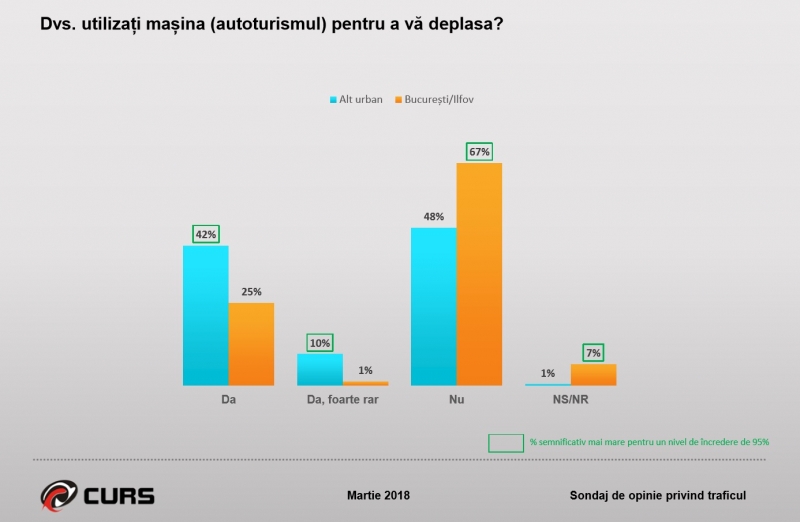
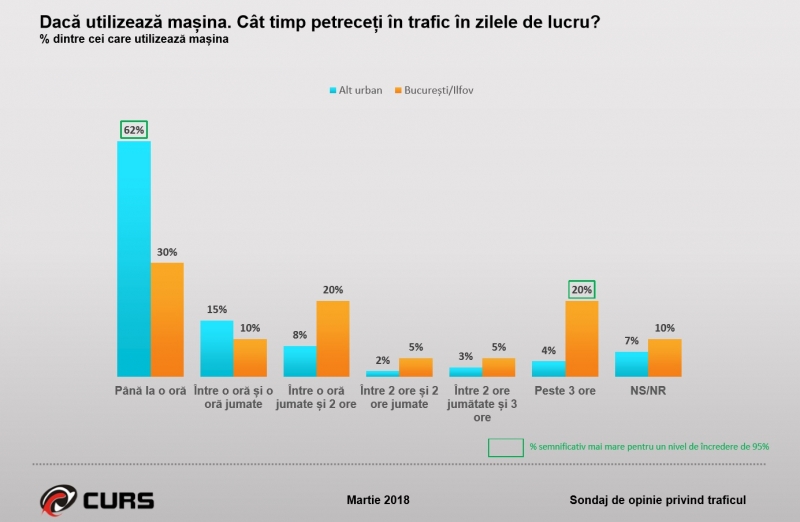
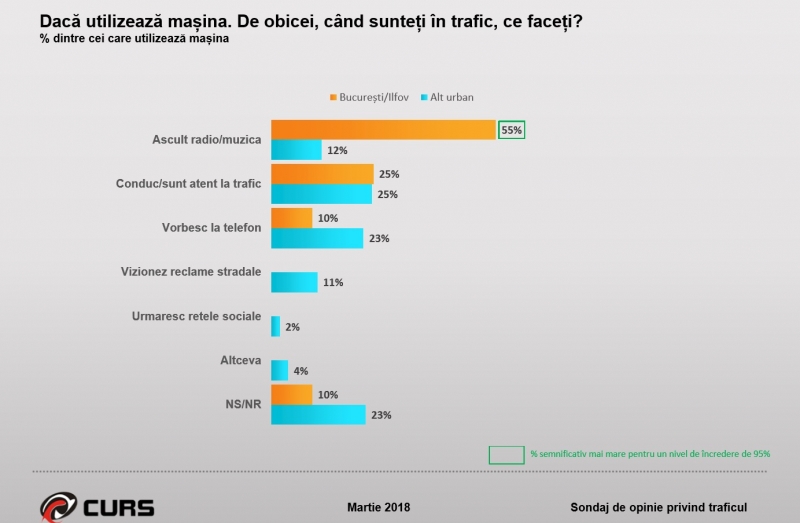
METHODOLOGY:
Sample volume: 452 respondents;
Sampling universe: adult, non-institutionalized population aged 18 years and over, residents in Bucharest, neighboring towns/villages and county residences;
Sample type: probabilistic, multi-stage, with random selection of polling stations, of households allocated to the polling station and of respondents in households.
Maximum error margin at the entire sample level: +/- 4.6% at a 95% confidence level.
Interviewing mode: face-to-face at the respondents’ home, using a structured questionnaire;
The validation of the sample was based on the latest INS data.
The data is not weighted.
Field dates: March 13-22, 2018.

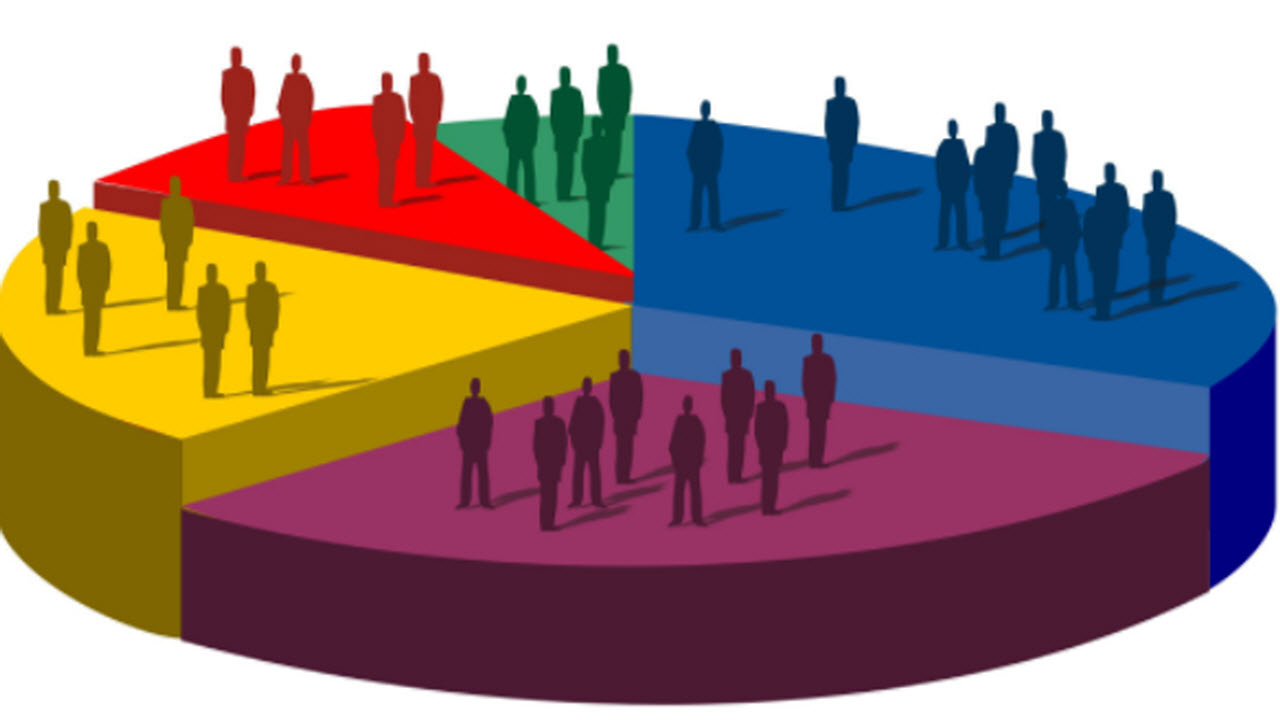
Lasă un răspuns